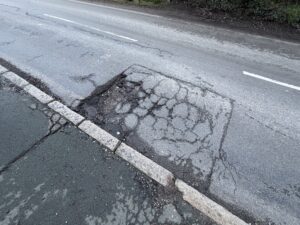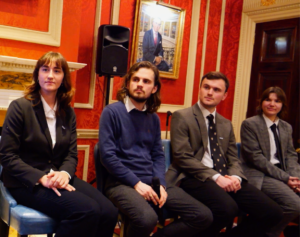The typical Monday-to-Friday commute may be gone for good as a result of the pandemic with motorists expecting to drive to workplaces on average three days a week as hybrid and home working become the norm, but they say they still rely on their cars.
The latest RAC Report on Motoring suggest that while 49% of drivers commuted five days a week before the pandemic, just 32% expect to in the future. In addition, three-in-10 drivers (30%) now expect to commute between one and four days a week with the average number of commuting days in future standing at three per week, down from four before Covid-19 hit.
Yet while the pandemic looks likely to cause major, long-term shifts in commuting patterns, the importance drivers place on having access to a car remains high.
The RAC found 82% of drivers this year said they would struggle without a car, the highest proportion recorded by the Club since 2006, up from 79% last year and 74% in 2019. Drivers in rural areas are much more likely to say they are car-dependent (87% of drivers, compared to a still significant 77% of town and city dwellers). Regional differences are also pronounced with drivers in the West Midlands, Yorkshire and the North East of England more likely than average to say they depend on their vehicles. One-in-five drivers (20%) expect to use their cars more as a result of the pandemic with the bulk (87%) expecting to do so for leisure purposes.
There’s an issue for public transport after the government messaging that it shouldn’t be used unless for essential journeys at the beginning of the pandemic. The RAC’s figures also suggest that negative attitudes towards public transport among drivers might be hardening. For the second year running fewer than half of drivers (46%) said they would use their cars less even if public transport was improved (compared to 59% just three years ago), while an almost identical proportion (45%) said they expect to use public transport less in the future as a direct result of the pandemic. And just a fifth (22%) say they see public transport as an attractive alternative to taking the car.
“These figures paint a picture of how car use is likely to change as a direct result of the pandemic, with a reduction in the number of days a week drivers commute by car being one of the most striking findings,” said RAC data insight spokesman Rod Dennis. “Many drivers clearly expect that ‘hybrid working’ will become the norm which could have a profound effect on the overall volume of vehicles on the roads during the week – although whether it signals an end to congestion during peak hours is another matter.”
“It’s also clear just how important the car is to so many people, a relationship that appears to have strengthened due to Covid-19. A greater proportion of drivers than ever say they’d find it hard to live without one, and when looking at the reasons why people drive over walking, cycling or taking public transport, it’s perhaps obvious why. In so many cases, the car is faster, more reliable and is really the only feasible option for the sorts of distances people travel, whether that’s to the local supermarket a few miles away or to see friends and family on the other side of the country.
“But perhaps what is one of the starkest findings from our report is around attitudes towards public transport. If the challenge faced by policymakers in getting drivers out of their cars before the pandemic was akin to trekking up a steep hill, our research suggests they now have a veritable mountain to climb. Just a fifth of drivers see public transport as an attractive alternative to driving and less than half say they would use their cars less even if public was improved. What’s more, most drivers say the pandemic has made them more wary of using public transport in the future.”
(Picture – Yay Images)
























